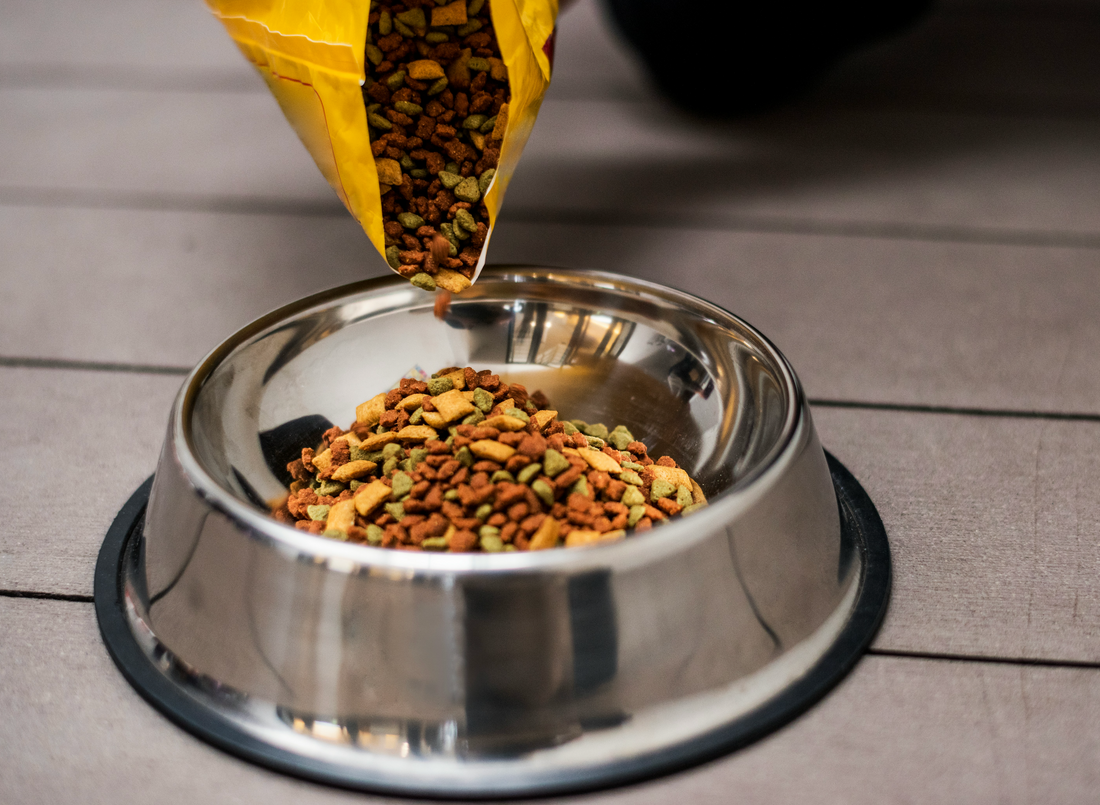
How to Establish Healthy Eating Habits for Your Pet
Share
Just like humans, pets need a balanced diet to thrive. Establishing healthy eating habits early on can help your pet maintain a healthy weight, avoid common health issues, and enjoy a long, happy life. In this guide, we’ll explore some practical tips to create a healthy diet routine for your furry friend.
1. Choose the Right Food for Your Pet
The first step to building healthy eating habits is selecting high-quality pet food that meets your pet’s specific needs. Whether it’s a puppy, kitten, adult, or senior pet, their nutritional requirements vary by age, size, and breed. Make sure to consult with your veterinarian to choose a diet that provides the right balance of proteins, fats, carbohydrates, and essential nutrients.
For pets with food sensitivities or allergies, you may need to explore special diets or limited ingredient formulas to ensure they’re getting the right nutrition without discomfort. Make sure to keep fresh water available at all times, as hydration is just as important as food.
If you’re unsure where to start, visit our HugWith official website for tips on selecting the best products for your pet’s health.
2. Establish a Feeding Schedule
Consistency is key when it comes to feeding your pet. Rather than leaving food out all day, establish a regular feeding schedule. Most pets do well with two meals per day, while some younger pets may require three. Feed your pet at the same time each day to help regulate their digestion and energy levels.
Be mindful of portion sizes based on your pet’s weight, activity level, and breed. Overfeeding can lead to obesity and related health issues, so always follow the recommended portion guidelines provided by your vet or pet food manufacturer.
For tips on maintaining a healthy feeding schedule, check out our Pet Care Tips blog.
3. Avoid Overfeeding and Treats
While it’s tempting to spoil your pet with treats, it’s important to remember that too many can contribute to weight gain. Treats should only make up a small percentage of your pet’s daily calorie intake. Instead of frequent treats, focus on rewarding your pet with playtime, affection, or a favorite toy.
If your pet enjoys snacks, opt for healthy, low-calorie options that provide nutritional benefits without packing on extra pounds.
4. Monitor Your Pet’s Weight
Regularly monitoring your pet’s weight is essential for ensuring they stay within a healthy range. Rapid weight gain or loss can be a sign of underlying health issues. If you notice significant changes in your pet’s weight, appetite, or behavior, it’s important to consult your veterinarian.
If your pet is overweight, don’t try to reduce their food intake drastically. Instead, work with your vet to create a weight management plan that includes adjusting portion sizes and increasing physical activity.
For more information on pet weight management, read our blog post on how to help your pet maintain a healthy weight.
5. Incorporate Exercise and Activity
In addition to a balanced diet, regular exercise is essential for keeping your pet in shape. Make sure your dog gets daily walks and playtime, while cats benefit from interactive toys and climbing opportunities. Exercise helps burn calories, improve digestion, and prevent boredom, which can lead to overeating.
After playtime, use our Pet Grooming Glove Wipes to clean your pet and keep them fresh after an active day.
6. Monitor Your Pet’s Dental Health
Good dental hygiene is an important part of your pet’s diet and overall health. Regularly cleaning your pet’s teeth can prevent plaque buildup and gum disease, which can affect their eating habits. For easy maintenance, use our Dental Cleaning Finger Wipes to help keep your pet’s teeth clean and fresh between vet visits.
For more expert advice on feeding and nutrition for pets, check out these trusted resources:
- ASPCA: Pet Nutrition Tips
- American Veterinary Medical Association: Nutrition for Dogs and Cats
- PetMD: Guide to Dog Nutrition
By establishing healthy eating habits and staying mindful of your pet’s dietary needs, you can help them live a long, healthy life. Remember, a well-balanced diet combined with regular exercise is the key to your pet’s overall health and happiness.
